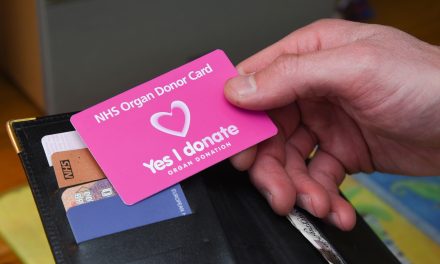A checklist to support disabled people, families and care staff challenge illegal ‘do not resuscitate’ orders from doctors is published today (Thursday) as part of a campaign by Turning Point and Learning Disability England (LDE).
The organisations say the document will help protect the rights of people with a learning disability if they become sick with coronavirus. It has been drawn up in response to a rise in GPs and hospital staff issuing ‘do not attempt cardiopulmonary resuscitation’ (DNACPR) forms without consulting patients or their families.
A total of 22 orders received since April have been called into question by Turning Point who says this compares with three a month on average requiring challenge.
Cases that Turning Point has challenged successfully include:
• A man in his 50s with sight loss* who was incorrectly diagnosed with coronavirus after admission to hospital following a choking incident. Doctors discharged the patient – who had aspiration pneumonia but has since recovered fully – the next day with a DNACPR form on the basis of ‘blindness and severe learning disabilities’.
• A man** whose quality of life would not be ‘worth it’ if he had to be resuscitated with CPR, according to a doctor. His father – a widower in his 80s living alone – says: “He (the doctor) rang me out of the blue. I’d never not want to resuscitate him, I want him saving. I’ve been fighting for him all his life. He’s all I have and comes to see me almost every day.”
Despite getting these and other decisions revoked, Turning Point and LDE – who between them and their members support or represent thousands of people UK-wide with a learning disability – say other disabled people may be denied potentially life-saving treatment.
A recent survey by LDE of its members found that one in five (20%) of organisations had seen DNAPCRs placed in people’s medical records without consultation in March and April.
Senior NHS officials and ministers have taken action to stop forms being issued widely. But unlawful orders are still being received by Turning Point and LDE.
The aim of the checklist is to support disabled people, their families and carers to ask key questions, such as whether doctors told the patient about the decision to discharge them from hospital with a DNACPR.
If not, the document advises them to get the clinician who authorised the order to provide details on why the decision was taken in the first place.
Families who welcome the checklist include Marie-Anne Peters whose brother Alistair has epilepsy but no underlying health conditions. With the help of their local health commissioners and Turning Point, she and her sister overturned a doctor’s order not to take Alistair to hospital if he fell ill with coronavirus.
Marie-Anne, from West Yorkshire, said: “If the staff at his care home hadn’t alerted our local health commissioners or MP then who knows what could have happened. My brother has been fighting (for life) his whole life and keeps recovering. Why would we give up on him now?”
Julie Bass, Chief Executive at Turning Point, said: “It is not only illegal but outrageous that a doctor would decide not to save someone just because they have a learning disability. They have the same right to life as anyone else.
“We hope our campaign and the checklist will help support families and care staff in challenging these orders.”
Scott Watkin, LDE Representative Body Co-chair, said: “Decisions on people’s treatment that are based on someone having a learning disability are never OK – even one is too many.
“We’re pleased this guide has been made so people can understand their rights and speak up for themselves or their family member. It’s an important step in helping people challenge poor or illegal decisions. Enough is enough.”









